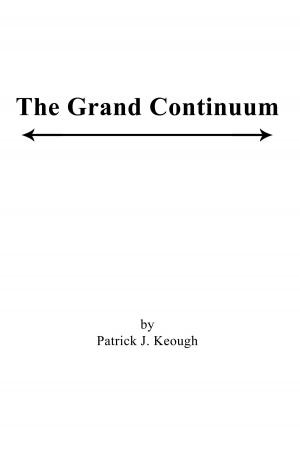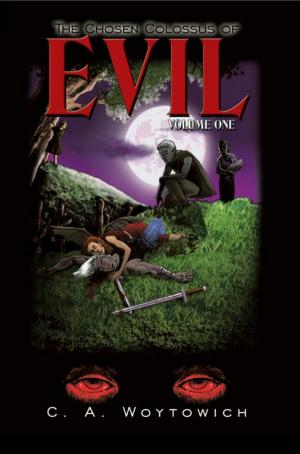Never These Men
One Man's Look at Baseball's Creatively Cultured Figures
Nonfiction, Sports, Biography & Memoir| Author: | Thomas Porky McDonald | ISBN: | 9781467075657 |
| Publisher: | AuthorHouse | Publication: | May 3, 2006 |
| Imprint: | AuthorHouse | Language: | English |
| Author: | Thomas Porky McDonald |
| ISBN: | 9781467075657 |
| Publisher: | AuthorHouse |
| Publication: | May 3, 2006 |
| Imprint: | AuthorHouse |
| Language: | English |
Certain individuals find a singular moment in life used to portray them and/or define them, if not basically brand them.In the world of sports, particularly baseball, this practice is raised to a level that is questionable at best, laughable in most instances and blatantly unfair as a rule.The sports media, along with a growing portion of the general public that refuses to form their own opinions, goes to extremes to constantly relive an individuals weak moments.Curiously, they often then close their ridiculing diatribes by mentioning that labeling a particular person is really unfair.In Never These Men, Thomas Porky McDonald, whose previous works stressed the notion that a game like baseball is there for the joy it gives to those who truly love it and understand it, takes a peek at a small collection of the most famous (or is it infamous?) of these media-fueled characters.The idea that someone who cannot possibly do something (play professional sports) might then play judge and jury on those that can (athletes) seems absurd to McDonald, who clearly feels that the ever-growing rash of media outlets, in concert with an unthinking generation of spectators, has only bloated the array of unfounded criticisms and hypocritical rhetoric within our midst.
From Fred Merkle, an early media creation, through to Bill Buckner, a truly fine and underrated ballplayer, Never These Men fundamentally asks the reader to imagine how it feels to be branded for a singular moment in ones life. McDonald, foremost a poet, liberally spreads a few relevant original verses throughout this volume, which is fundamentally a call for fair play.The idea of balanced and proper reporting is considered as well, as in the cases of Ralph Branca, Mitch Williams and Ralph Terry.Though all three were solid Major Leaguers who gave up famous home runs, only the former two are constantly cited, a point of contention here.In the area of authority figures, why Charles Comiskey and Judge Landis are barely scrutinized for their truly abhorrent behavior, while a lifetime baseball man like Gene Mauch is merely brushed aside by far too many is a question that clearly haunts this writer.Never These Men asserts that working in a world with little or no accountability, while demanding total accountability from those whose skill and expertise literally creates your professional existence, is an absurdity that needs to be addressed.
Certain individuals find a singular moment in life used to portray them and/or define them, if not basically brand them.In the world of sports, particularly baseball, this practice is raised to a level that is questionable at best, laughable in most instances and blatantly unfair as a rule.The sports media, along with a growing portion of the general public that refuses to form their own opinions, goes to extremes to constantly relive an individuals weak moments.Curiously, they often then close their ridiculing diatribes by mentioning that labeling a particular person is really unfair.In Never These Men, Thomas Porky McDonald, whose previous works stressed the notion that a game like baseball is there for the joy it gives to those who truly love it and understand it, takes a peek at a small collection of the most famous (or is it infamous?) of these media-fueled characters.The idea that someone who cannot possibly do something (play professional sports) might then play judge and jury on those that can (athletes) seems absurd to McDonald, who clearly feels that the ever-growing rash of media outlets, in concert with an unthinking generation of spectators, has only bloated the array of unfounded criticisms and hypocritical rhetoric within our midst.
From Fred Merkle, an early media creation, through to Bill Buckner, a truly fine and underrated ballplayer, Never These Men fundamentally asks the reader to imagine how it feels to be branded for a singular moment in ones life. McDonald, foremost a poet, liberally spreads a few relevant original verses throughout this volume, which is fundamentally a call for fair play.The idea of balanced and proper reporting is considered as well, as in the cases of Ralph Branca, Mitch Williams and Ralph Terry.Though all three were solid Major Leaguers who gave up famous home runs, only the former two are constantly cited, a point of contention here.In the area of authority figures, why Charles Comiskey and Judge Landis are barely scrutinized for their truly abhorrent behavior, while a lifetime baseball man like Gene Mauch is merely brushed aside by far too many is a question that clearly haunts this writer.Never These Men asserts that working in a world with little or no accountability, while demanding total accountability from those whose skill and expertise literally creates your professional existence, is an absurdity that needs to be addressed.















